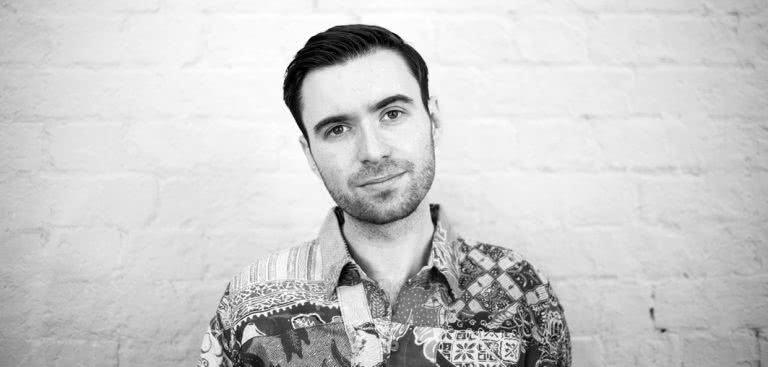After releasing a moderately successful album under the name Phatchance, in 2012 Sydney MC Chance Waters reverted to his birthname and has since unfurled a consistent flow of upbeat, radio-supported singles. Waters has certainly seized upon the revised stylistic permissions of Australian hip hop music.
“Right now in Australia there’s so many different kinds of hip hop music coming out and being popularised where you can really do anything,” he says. “You can take it [in] whatever kind of production direction you want. It provides a more interesting challenge when you’re deciding what kind of production to actually roll with, because the options are really unlimited.”
Switching to his real name didn’t signal Waters would be going it alone. The nice-guy rapper’s 2012 albumInfinitywas made in close collaboration with Adelaide producer One Above (AKA Andrew Burford).
“He really is responsible for almost all of the music,” Waters says. “Sometimes he’s already made a piece of music and he’ll pitch that piece of music to me and I’ll think, ‘Great,’ and suggest more structural changes and things I’d like to see in it. Generally speaking I prefer to write lyrics to a piece of music than vice-versa.”
One Above is not the only outside party contributing to Waters’ growing profile. The rebranded Chance Waters had his major breakthrough with the single ‘Maybe Tomorrow’, featuring Lilian Blue. This was followed by another radio-storming tune, ‘Young & Dumb’, which featured Bertie Blackman.
“There’s a lot of people involved in every single song,” Waters says, “whether or not they’re full features. I like to work with BVs, particularly female BVs and sometimes choir parts. So, often I’ll have a lot of different people come in and stand in front of a microphone.”
The success ofInfinitygot the attention of the heavyweights at Island/Universal who’ve now struck up a deal with Waters’ pre-existing indie label, I Forget, Sorry! Joining a major hasn’t halted the flow of new music and in the last six months tracks with Patience Hodgson (‘Looking For Something’) and The Griswolds (‘Bonnie’) both glided onto the airwaves. Waters is evidently thrilled about getting to work with a number of his talented contemporaries.
“When you look at somebody like Patience, she has just so much musical experience. She’s full of interesting stories and she’s obviously been around the block for ages and really worked very hard in an independent faculty to build a career. It’s very nice getting to know those people and learning things from them. In most cases they’re a lot cooler than me so it’s just nice hanging out with them.”
A few weeks ago, Waters dropped yet another infectious track: the calmly delivered protest number ‘The Ticket Inspector’. The three recent singles are lifted from a forthcoming record, which Waters and Burford have actually been chipping away at for quite a while.
“After I finishedInfinityin 2012, I went down to Adelaide with One Above and we started hammering out music. [Since] then it’s just been a slow process of putting it all together and scrapping a few things and starting a few new things.”
Many artists decline to speak candidly about their chief influences, but Waters has no scruples acknowledging where he looked for inspiration when working on the new album. “Mark Ronson; his production is definitely an influence on both Andrew and I. I think you can probably hear that on the record. Unfortunately it all happened a bit late to really influence the record much, but I really like what Ryan Lewis has been doing for Macklemore. I think Andrew and I always loved that style of production and it’s executed really well on that record. It sets a standard for the quality of what we’d like to be doing.
“I’m very obvious in that way. Directly I’ll say, ‘I really like what this person is doing,’ or I’ll play [Burford] songs and we’ll grab some ideas. Often I’ll end up with a hodgepodge of 15 different influences across the record.”
The frequency of Waters’ releases over the past two years shows he’s comfortable cooperating with the current singles-oriented industry. Still, he does greatly believe in the album format.“Single songs are going to have a larger impact now than records, but that doesn’t devalue the worth of making a really great album. At the end of the day when people are listening to a whole record they’re going to get connected to you as an artist and [get] to know you as an artist a lot more than when they’re just listening to single songs.”
Accordingly, Waters looked to apply some thematic continuity to his new record. “In all of the artwork and in all of the songs there’s references to sight or seeing,” he reveals. “There’s one song called ‘Tomorrow In Our Eyes’ and that track’s about kids in the 1930s through to the ’50s who thought the future would be this al-foil clad space movie. Then kids in the ’80s thought everything was [going to be] this hyper-coloured thing. In many ways, now that we have this future, we’ve lost a lot of the dreaming and hope aspects that made that kind of imagining fun.”
Chance Waters plays with Brendan Maclean atOxford Art Factory onSaturday April 12


































